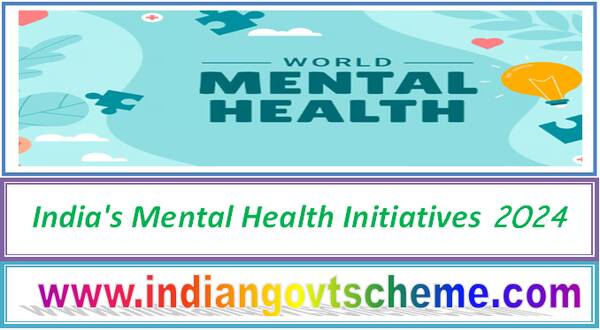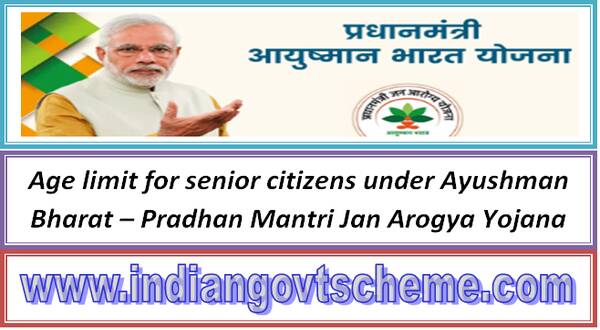Government Initiatives for Mental Health: Policies, Infrastructure, and Manpower Development, Including Tele Mental Health and Educational Programs, as of January 30, 2024.
GOVERNMENT OF INDIA
MINISTRY OF HEALTH AND FAMILY WELFARE
DEPARTMENT OF HEALTH AND FAMILY WELFARE
LOK SABHA
STARRED QUESTION NO. 13
TO BE ANSWERED ON THE 2ND FEBRUARY, 2024
NATIONAL MENTAL HEALTH POLICY 2014
13. SHRI GAURAV GOGOI
Will the Minister of HEALTH AND FAMILY WELFARE be pleased to state:
(a) whether the Government is aware that as per data released by the World Health Organisation, 60-70 million Indians are suffering from mental health disorders and if so, the details thereof;

(b) whether the Government has made any progress in implementing the measures detailed in the National Mental Health Policy 2014 in the country;
(c) if so, the details thereof and if not, the reasons therefor; and
(d) the steps taken/proposed to be taken by the Government to increase the availability of qualified mental health professionals including psychiatrists, psychologists and counsellors in the country?
ANSWER
THE MINISTER OF HEALTH AND FAMILY WELFARE
(DR MANSUKH MANDAVIYA)
(a) to (d) A Statement is laid on the Table of the House.
STATEMENT REFERRED TO IN REPLY TO LOK SABHA STARRED QUESTION NO. 13 FOR 2ND FEBRUARY, 2024
(a) As per the National Mental Health Survey 2015-16 conducted by the Government through National Institute of Mental Health and Neurosciences (NIMHANS), Bangalore in 12 States of the country, the prevalence of mental disorders including common mental disorders, severe mental disorders, and alcohol and substance use disorders (excluding tobacco use disorder) in adults over the age of 18 years is about 10.6%. The treatment gap for mental disorders ranged between 70% to 92% for different disorders.
(b) to (d) Mental Health infrastructure development is being implemented across the primary, secondary, and tertiary care facilities for implementing the measures detailed in National Mental Health Policy 2014. As part of the National Mental Health Programme (NMHP), the District Mental Health Programme (DMHP) component has been sanctioned for implementation in 738 districts of the country, for which support is provided to States/UTs through the National Health Mission.
Facilities made available under DMHP at the Community Health Centre(CHC) and Primary Health Centre(PHC) levels, include outpatient services, assessment, counselling/ psycho-social interventions, continuing care and support to persons with severe mental disorders, drugs, outreach services, ambulance services etc. In addition to above services there is a provision of 10 bedded in-patient facility at the District level.
In addition to the above, the Government is also taking steps to strengthen mental healthcare services at primary healthcare level. The Government has upgraded more than 1.6 lakh SHCs, PHCs, UPHCs and UHWCs to Ayushman Arogya Mandirs. Mental health services have been added in the package of services under Comprehensive Primary Health Care provided at these Ayushman Arogya Mandirs. Operational guidelines on Mental, Neurological, and Substance Use Disorders (MNS) at Ayushman Arogya Mandirs have been released under the ambit of Ayushman Bharat.
Besides the above, the Government has launched a “National Tele Mental Health Programme” (NTMHP) on 10th October, 2022, to improve access to quality mental health counselling and care services in the country. As on 30.01.2024, 34 States/ UTs have set up 47 Tele MANAS Cells and have started tele mental health services. More than 6,28,000 calls have been handled on the helpline number.
The number of Under Graduate (UG) seats and Post Graduate (PG) seats have increased by 112% and 127% respectively since 2014. Further, the Government has also taken the following steps to increase the availability of doctors in the country:
i. Centrally Sponsored Scheme (CSS) for establishment of new medical colleges by upgrading district/ referral hospital under which 157 new medical colleges have been approved, out of which 108 are already functional.
ii. CSS for strengthening/ upgradation of existing State Government/ Central Government medical colleges to increase the number of MBBS (UG) and PG seats.
iii. Under “Upgradation of Government medical colleges by construction of Super Specialty Blocks” of PMSSY scheme, a total of 75 projects have been approved, of which 64 projects are complete.
iv. Under the Central Sector Scheme for setting up of new AIIMS, 22 AIIMS have been approved. Undergraduate courses have started in 19 of these.
v. DNB qualification has been recognized for appointment as teaching faculty to take care of shortage of faculty.
vi. Enhancement of age limit for appointment/ extension/ re-employment against posts of teachers/dean/principal/ director in medical colleges upto 70 years.
For increasing the number of psychiatrists in the Country, PGMEB of NMC has issued the Minimum Standard of Requirements for Post-Graduate Courses – 2023 (PGMSR-2023) on 15.1.2024. For starting/ increase of seats in MD (Psychiatry), PGMSR-2023 has brought down the number of OPD to 30 per day, for annual intake of maximum 2 PG students with 20% increase for each additional seat. Similarly, the minimum beds required per unit for starting MD (Psychiatry) course with 2 seats in a medical college is 8 beds and 12 beds for 3 seats and 20 beds for 5 seats.
Under the tertiary care component of NMHP, 25 Centres of Excellence have been sanctioned to increase the intake of students in PG departments in mental health specialities as well as to provide tertiary level treatment facilities. Further, the Government has also supported 19 Government medical colleges/institutions to strengthen 47 PG Departments in mental health specialties. Mental Health Services are also provisioned for 22 AIIMS. These services are also available under PMJAY.
Under the District Mental Health Programme implemented under the National Mental Health Programme, the manpower is trained at various DMHP units. One of the components of DMHP is to provide training to specialist and non- specialist cadres such as Medical Officers, Psychologists, Social Workers, and Nurses.
The Government is also augmenting the availability of manpower to deliver mental healthcare services in the underserved areas of the country by providing online training courses to various categories of general healthcare medical and para medical professionals through the Digital Academies, since 2018, established at the three Central Mental Health Institutes namely National Institute of Mental Health and Neuro Sciences, Bengaluru, Lokopriya Gopinath Bordoloi Regional Institute of Mental Health, Tezpur, Assam, and Central Institute of Psychiatry, Ranchi. The number of trained professionals under Digital Academy are as follows:
| Sr. No. | Institute | No. of professionals trained |
| 1 | NIMHANS, Bengaluru | 22374 |
| 2 | LGBRIMH, Tezpur | 561 |
| 3 | CIP, Ranchi | 237 |
नोट :- हमारे वेबसाइट www.indiangovtscheme.com पर ऐसी जानकारी रोजाना आती रहती है, तो आप ऐसी ही सरकारी योजनाओं की जानकारी पाने के लिए हमारे वेबसाइट www.indiangovtscheme.com से जुड़े रहे।

